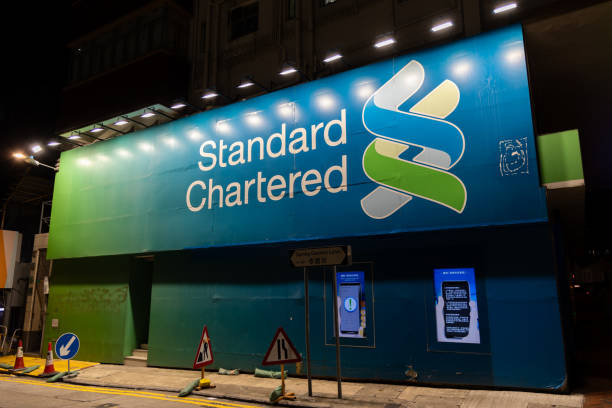Standard Chartered has officially taken the lead in bringing cryptocurrencies into mainstream banking by enabling spot trading of Bitcoin and Ether for institutional clients. This makes it the first major global bank to provide direct access to these digital assets.
The service, introduced through its UK branch, allows corporates, asset managers, and institutional investors to trade BTC/USD and ETH/USD pairs. Soon, the bank plans to introduce non-deliverable forwards, extending its product suite beyond immediate settlement into forward contracts.
Integration Into Existing Infrastructure
Unlike crypto-first exchanges, Standard Chartered will merge this new service into its existing foreign exchange trading platforms. Clients can settle through custodians of their choosing—including the bank’s own regulated custody solution—ensuring seamless integration and familiar workflows.
The service operates within the bank’s regulated framework as an FCA-registered cryptoasset provider, offering clients the security and regulatory oversight they expect from a systemic lender
Bill Winters, CEO of Standard Chartered, emphasised that “digital assets are a foundational element of the evolution in financial services.” He added that as “client demand accelerates further,” the bank wants a regulated route for digital asset trading and risk management.
This move reflects the broader shift in sentiment in traditional finance. Institutional appetite for crypto has soared, helped by clearer regulatory frameworks. U.S. lawmakers are currently examining legislation to integrate crypto into mainstream markets, further boosting the legitimacy of digital assets and reducing entry hurdles for large investors .
Trump’s Pro-Crypto Stance and Market Surge
The timing coincides with a renewed surge in crypto demand following the return of Donald Trump to the White House. His administration has signalled a softer approach to crypto regulation. Under his leadership, enforcement actions by the SEC have been scaled back, lawsuits dropped, and supportive legislation encouraged. At the same time, Bitcoin hit an all-time high approaching $123,000.
This political tailwind has shifted market sentiment, bringing mainstream institutions even closer to crypto. Standard Chartered’s move could be a direct response to this favourable environment.
A Strategic Crypto Push
Standard Chartered’s step into direct spot trading builds on its previous crypto efforts. The bank already launched Zodia Custody and Zodia Markets via SC Ventures, and offers tokenisation services through Libeara. In partnership with FalconX, it has also enhanced institutional access to crypto through improved fiat settlement infrastructure.
This strategic layering—custody, trading, tokenisation—positions Standard Chartered as a full-service provider in the digital asset ecosystem.
A Benchmarker for Others
Standard Chartered’s move marks a watershed moment. By becoming the first systemic global bank to offer deliverable crypto trading, it has set a new benchmark for traditional finance institutions. Positioned at the intersection of legacy finance and the emerging crypto economy, it has built a model that others—from Morgan Stanley to Citadel—may soon follow.
Institutional clients seeking secure, compliant routes into crypto markets now have a familiar partner. The bank’s integration of spot trading into existing FX platforms removes major friction points. Beyond proving its own commitment to the crypto space, Standard Chartered offers a test case for regulated, mainstream adoption of digital assets.
However, this breakthrough raises broader questions. As crypto merges with traditional banking, firms will need to navigate volatile markets, stringent capital requirements, and evolving regulatory expectations. The bank’s move signals both opportunity and challenge ahead.
In short, Standard Chartered has jumped first. Whether it leads a rush of banks into crypto or sparks a measured industry shift depends on how effectively it manages execution, risk, and compliance in this high-stakes arena.


